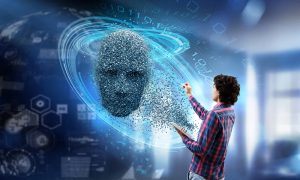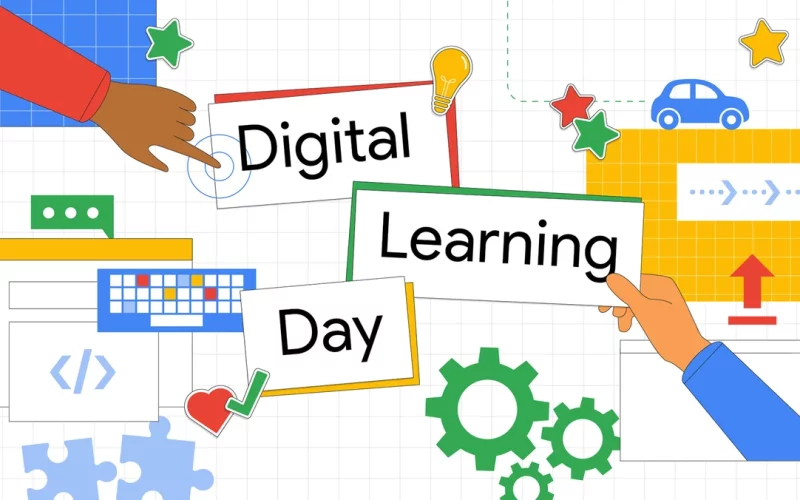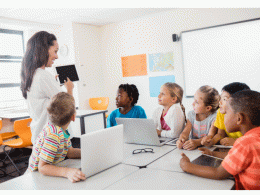Introduction:
In celebration of Digital Learning Day 2024, we delve into the transformative power of digital learning in shaping the future of education. With the advent of Education 2.0, traditional classroom dynamics are being reshaped by the integration of cutting-edge digital technologies. In this article, we explore how educators are embracing the digital era to foster enhanced learning experiences and prepare students for success in the 21st century.
The Rise of Education 2.0
Education 2.0 represents a paradigm shift in the way knowledge is imparted and acquired. It encompasses the utilization of digital tools and platforms to facilitate personalized, interactive, and collaborative learning experiences. Spearheaded by advancements in technology, Education 2.0 transcends the limitations of traditional classroom methods, offering unparalleled opportunities for innovation and engagement.
Understanding Digital Learning

Digital learning encompasses a diverse array of tools and resources designed to enhance the educational experience. From interactive multimedia presentations to virtual simulations and online collaborative platforms, digital learning empowers educators to cater to diverse learning styles and adapt instruction to individual student needs. By leveraging digital technologies, educators can create dynamic and immersive learning environments that foster critical thinking, creativity, and problem-solving skills.
Benefits of Embracing Digital Learning in Schools
The integration of digital learning in schools yields a multitude of benefits for both educators and students alike. By harnessing the power of technology, educators can transcend traditional boundaries of time and space, enabling anytime, anywhere learning. Furthermore, digital tools offer adaptive learning solutions that cater to students’ unique strengths and weaknesses, promoting personalized mastery of academic concepts. Additionally, digital learning fosters collaboration and communication among students, cultivating essential 21st-century skills essential for success in today’s interconnected world.
Practical Strategies for Implementation

Implementing digital learning initiatives in schools requires careful planning and strategic execution. Educators must prioritize professional development to ensure proficiency in utilizing digital tools effectively. Moreover, establishing robust infrastructure and access to technology is essential to facilitate seamless integration into the curriculum. Collaborating with stakeholders, including students, parents, and administrators, is also crucial for garnering support and fostering a culture of innovation and continuous improvement.
Key Points Summary Table
| Key Point | Details |
|---|---|
| Rise of Education 2.0 | Paradigm shift in education towards digital learning |
| Understanding Digital Learning | Tools and resources for personalized, interactive learning |
| Benefits of Digital Learning | Enhanced engagement, personalized learning, and collaboration |
| Practical Strategies for Implementation | Professional development, infrastructure, and stakeholder collaboration |
Comparative Table: Traditional vs. Digital Learning
| Aspect | Traditional Learning | Digital Learning |
|---|---|---|
| Access to Resources | Limited access to resources | Unlimited access to digital content |
| Engagement | Passive learning | Active participation and interactivity |
| Personalization | One-size-fits-all instruction | Tailored learning experiences based on individual needs |
| Collaboration | Limited interaction | Seamless collaboration and communication |
| Flexibility | Fixed schedule and location | Anytime, anywhere learning |
Conclusion:
As we celebrate Digital Learning Day 2024 let us recognize the transformative potential of digital learning in revolutionizing education. By harnessing the power of Education 2.0, schools can empower students to become lifelong learners equipped with the knowledge, skills, and competencies needed to thrive in an increasingly digital world. Together, let us embark on this transformative journey, shaping the future of education one digital lesson at a time.
Knowledge Source:
Dr. Emily Johnson, Ph.D. Expert in Educational Technology and Digital Learning Associate Professor, Department of Education University of Technology, Innovation, and Learning
About the Author:
John Smith is an experienced educator with a passion for leveraging technology to enhance teaching and learning experiences. With over a decade of experience in the field of education, John is dedicated to exploring innovative approaches to prepare students for success in the digital age.









